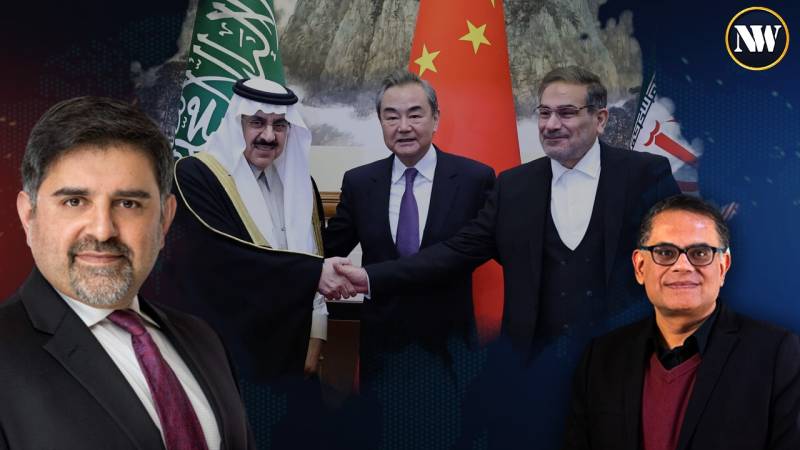In this interview with Kamran Bukhari, a Senior Director at the New Line Institute in Washington DC, the discussion revolved around the announcement of a Saudi-Iranian thaw, signaling a significant watershed moment in the Middle East. The interview touched upon China's growing influence in the region and its potential impact on the long-standing power dynamics between Saudi Arabia and the United States. As China's economic heft and diplomatic engagement expand, both Saudi Arabia and Iran are seeking to recalibrate their international relationships, raising important questions about the evolving geopolitics in the Middle East.
China's emergence as a global economic power has granted it considerable diplomatic leverage, especially in regions with rich natural resources like the Middle East. While it may not rival the United States militarily, China's cash-fueled economic ventures have enabled it to cultivate partnerships and pursue strategic interests in various countries. The Chinese government's pursuit of the Belt and Road Initiative (BRI) has been a prominent example of this, with investments in infrastructure projects across Asia, Africa, and the Middle East.
Kamran Bukhari highlighted that China is capitalizing on the United States' preoccupation with multiple global challenges. The U.S.'s focus on issues like the war in Ukraine and competition with China itself has provided China with an opportunity to assert its diplomatic presence and expand its reach in regions where the United States has traditionally held sway.
Saudi Arabia's historically close relationship with the United States has been a cornerstone of its foreign policy. However, recent strains in U.S.-Saudi relations, particularly during the Obama and Biden administrations' stances on human rights and democracy, have led to unease in the Saudi camp. In response, the Saudis are looking to diversify their partnerships and explore new alliances.
Kamran Bukhari emphasized that the Saudis' decision to strengthen ties with China and not sever ties with Russia, despite the conflict in Ukraine, is a reflection of their discontent with the United States. While Saudi Arabia acknowledges that China cannot replace the U.S. in terms of security, it is using its engagement with China as a signal to regain the attention of the United States and reaffirm its importance as a strategic partner.
As China's internal challenges and vulnerabilities mount, President Xi's leadership faces increased pressure. Kamran Bukhari pointed out that China's recent assertive posturing in response to criticism from the United States and its involvement in the Middle East may be driven by a desire to project strength amid internal troubles. By displaying greater confidence on the global stage, China seeks to present itself as an influential player despite its internal economic and political concerns.
The $400 billion, 25-year agreement between China and Iran, signed before the Taliban's takeover of Afghanistan, is a clear indication of China's intentions to extend its reach in the region. This agreement allows China to secure oil imports from Iran and access the Persian Gulf, significantly bolstering its economic interests.
China's growing influence and assertiveness in the Middle East now have the potential to reshape the region's geopolitics. As the United States contends with its domestic issues and external challenges, China's diplomatic engagement and economic heft offer an attractive alternative for countries seeking to diversify their partnerships. This development has the potential to shift the balance of power in the region, especially as countries like Saudi Arabia and Iran seek to recalibrate their relationships with the United States.

